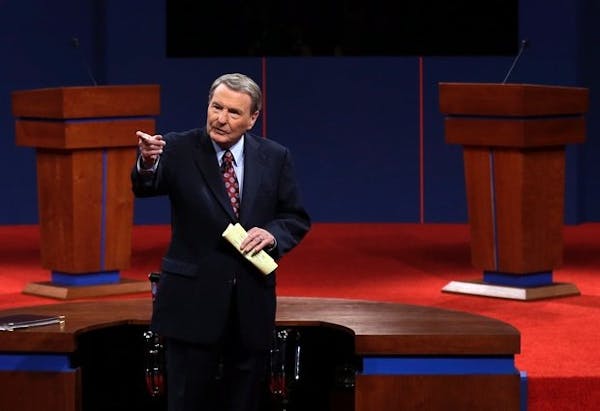Debate One produced no obvious gaffes or memorable one-liners. It may have produced millions of glazed eyes in the viewing audience Wednesday night as President Barack Obama and Republican presidential nominee Mitt Romney displayed their wonkish natures with a 90-minute discussion of their differences on domestic policy.
Both candidates seemed to heed editorialists' calls for more details about their plans for stimulating the economy and reducing the federal debt – perhaps to a fault, as each went deep into the policy weeds to point out flaws in each other's proposals.
But Americans are likely still left wondering how Obama can spur the economy in a second term with policies that largely stay the course, and how Romney's stated intentions to cut taxes and avoid cuts in Medicare and defense can lead to the lower national debt he also promises to deliver.
Romney's delivery seemed smoother than Obama's, particularly as he hammered home his belief that any tax increase, including the one for upper-income Americans that Obama has long favored, would hinder economic recovery.
In response, Obama launched at least a partial litany of the likely consequences of Romney's budget ideas. The president faulted Romney for a plan that would lead to cuts in federal support for education, college financial aid, and Medicaid, the health care program for the very poor. But Romney disputed Obama's analysis, undoubtedly leaving Americans wondering what to believe.
Exchanges such as that one – and there were more just like it, on Medicare, health care reform, regulation and more – ought to make this debate a springboard to a new phase of this long campaign. Better explanations ought to come from both candidates in coming days about the costs and benefits of the plans they have for America.
-----------------
The Opinion section is launching a newsletter this fall. Please sign up here: http://bit.ly/kJ1b61
The 'Civility Caucus'

Sports betting push at Legislature resorts to punitive leverage


